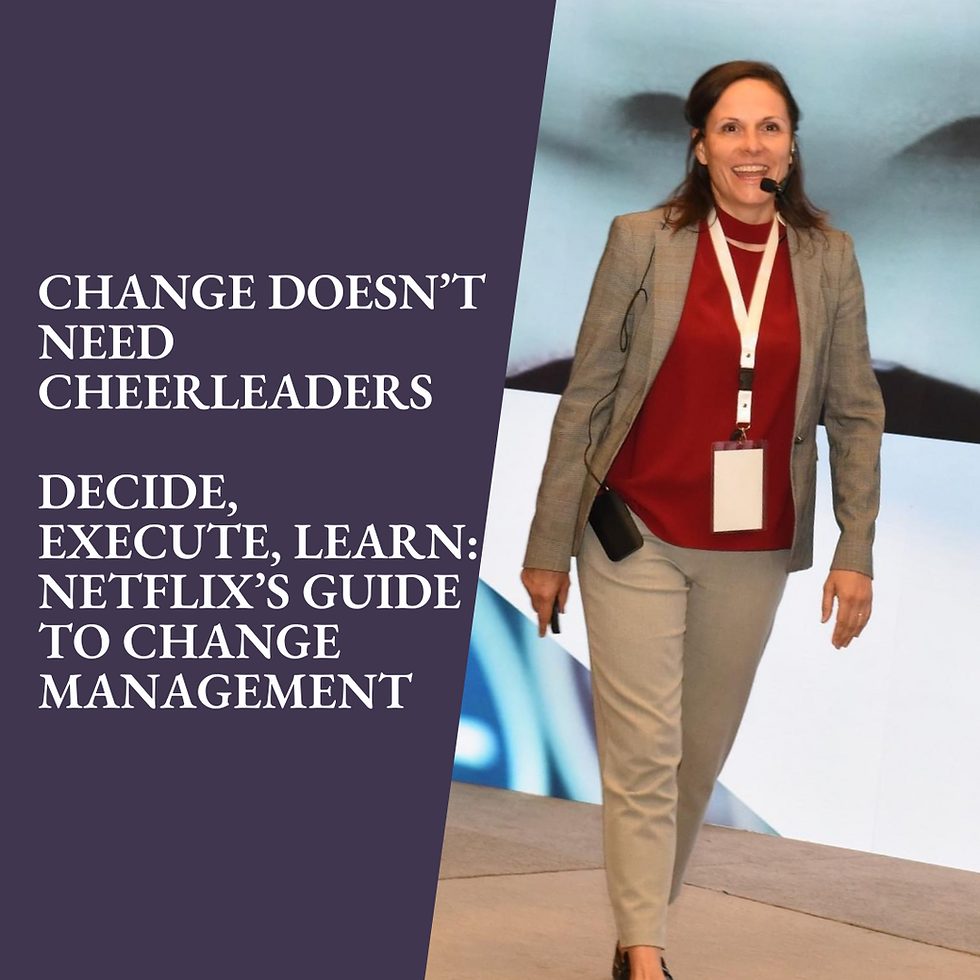Loyalty = Output - Don't Get Sentimental
- Szilvia Olah

- Jul 7, 2023
- 3 min read
Call me weird, but I never expected my employees to stay longer than a year or so. I wanted them to do a good job while they were with me. I used to tell them; to go and see life, experience new people, jobs or whatever. You are young, don't get stuck. That's why I don't understand why managers are obsessed with keeping employees and take it personally when they leave. Once, I asked a manager when she almost broke down when receiving three resignations within a week, "Are they leaving because of you?" she said no (she is a great manager), to which I replied, "Then, who abandoned you that you are taking this so personally?"
Let me start with this, after six months of leaving my company of 16 years, I can now conclude that staying that long may not have been my best idea. Don't get me wrong, I love that company and am very proud of it, but staying didn't serve me well for many reasons. I will write about that another time. Today we will look at how loyalty has changed.
Employers cry, as always, that employee loyalty is gone. No, it is not gone, it has changed like everything else, so I don't really understand why we expect loyalty to stay the same.
Let's take Gen Z. They will not labour away quietly and obediently as we did. We have taught them to speak up, and we also taught them to walk away from everything that causes minor inconvenience. They are much quicker to walk away from relationships, therefore, they are less likely to ride out difficult times with you.
They have grown up in a world of accelerated change and are very comfortable with it. Uncertainty is their natural habitat, and they thrive in it. The constantly changing environment has taught them that they cannot trust the system or organisations to take care of them, therefore, they are not likely to make short-term sacrifices for long-term promises. It can easily happen that we promise them something we may be unable to deliver because things have changed overnight.
They look at work differently. They are not asking where they fit into our complex organisations but rather how the organisation and work fit into their lives. For them, work is transactional, not something to be attached to or die for. It pays the bills so they can live their lives outside of work. As a result, their career journey will consist of many shorter terms of transactional collaboration where their main question will be, "What do you need from me?" So be prepared to have something specific for them as they will not hang about. Read here about the transactional nature of Gen Z.
And this is what the newly transformed loyalty looks like; giving 100% effort while working with us. But we need to allow this and provide them with something to do and stop hammering them with our expectations of staying and spare them from the pep talk of "You know, you cannot jump around jobs......" or "I have spent years.... bla bla bla."
If we want to embrace Gen Z, we must embrace transactional relationships in the future and measure loyalty based on their output whilst they are with us.
By the way, shouldn't we measure everything by output in organisations? We pay for that, right?
Read more about practices that need to change:

.png)



Comments